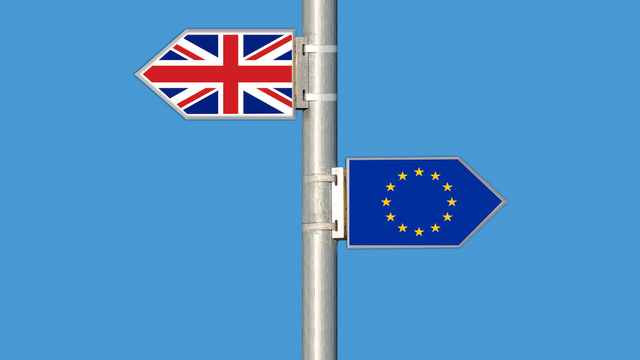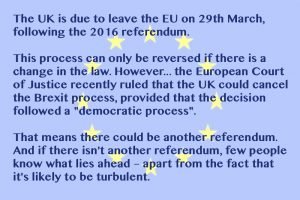Trying to make sense of the EU

Article 50, Lisbon Treaty, Canada Plus, customs union...
What does it all mean? How exactly are we goverened by this sprawling set of institutions? Most people have a vague idea that the EU is a good thing that enhances our freedoms and rights, or that it's a bad thing that reduces our freedoms and rights. But few people could tell you anything concrete to back up their ideas and beliefs.
I want to understand more about the EU. I'm going to delve into it, and try to clarify some issues, which I'll write about in a series of posts.
Hopefully this will be an educational process for myself as well as others.
Poorly informed
At the time of the 2016 referendum, many voters felt ill-informed about the EU. A poll commissioned by the Electoral Reform Society before the referendum of 2016 found that almost half of UK people of voting age felt either "poorly informed" or "very poorly informed" about the EU referendum.
Only 4% felt "very well informed", with a further 12% of voters saying they felt "well informed" about the referendum.
Much of the information about the EU appears to be propaganda, biased towards one side or the other, overly complex – or all three. What is the EU really about?
I want to try and find the facts behind the histrionics and propaganda, and that's what this series will aim to do.
I'm not going to attempt to present a comprehensive, definitive guide to the EU. Instead, I want to look at some specific aspects of this union, to try and answer some of the questions I have in my mind. I hope this will help me and my readers get a clearer and more insightful picture of this sprawling institution that has so much influence over the lives of most Europeans.
My position on Brexit
I used to be passionately pro-EU, but it was a passion built on ignorance and political fervour. I started questioning these beliefs during the recession that started in 2008. I expressed my reasons for this in these blog posts:
What are the actual advantages of being part of the EU?
UKIP makes any criticism of the EU appear as crazed xenophobia
Should the UK leave the EU?
I voted Leave, and I would vote Leave again if there was another referendum today. However, I suspect there will be unpleasant outcome whether we remain or leave with or without a deal.
From my current understanding of the EU, I see it as a body that badly needs reform, transparency and clarity. Britain's exit might kick-start that reform process, or it might encourage other member states to leave.
Despite voting Leave, in an ideal world I would like Britain to stay in for a few years more, provided that there would be a concerted effort to clarify the workings of the EU, so that people in all member states and proposed member states could educate themselves about how the EU works – without the propaganda, hysteria and subterfuge.
There should then be a full, clear debate on how the workings of the EU could be improved.
Pigs might fly. This is never going to happen, and therefore I think Britain has to carry through its plans to leave the EU.
How did we get here?
An "in-out" referendum on the EU was a key pledge of David Cameron's election campaign. I think his advisors were certain that the outcome would be "remain", and that this would "kick the issue into the long grass" – in other words, close it once and for all. That's why I think it's important that we don't throw away this opportunity for change.
This how I see things at the time of starting this series. I am much better informed about the EU than I was before the recession of 2008.
But I still have much to learn, and as I learn more, my position on the whole Brexit issue could change.
Posted from my blog with SteemPress : http://democracyisntworking.co.uk/eu/trying-to-make-sense-of-the-eu/


